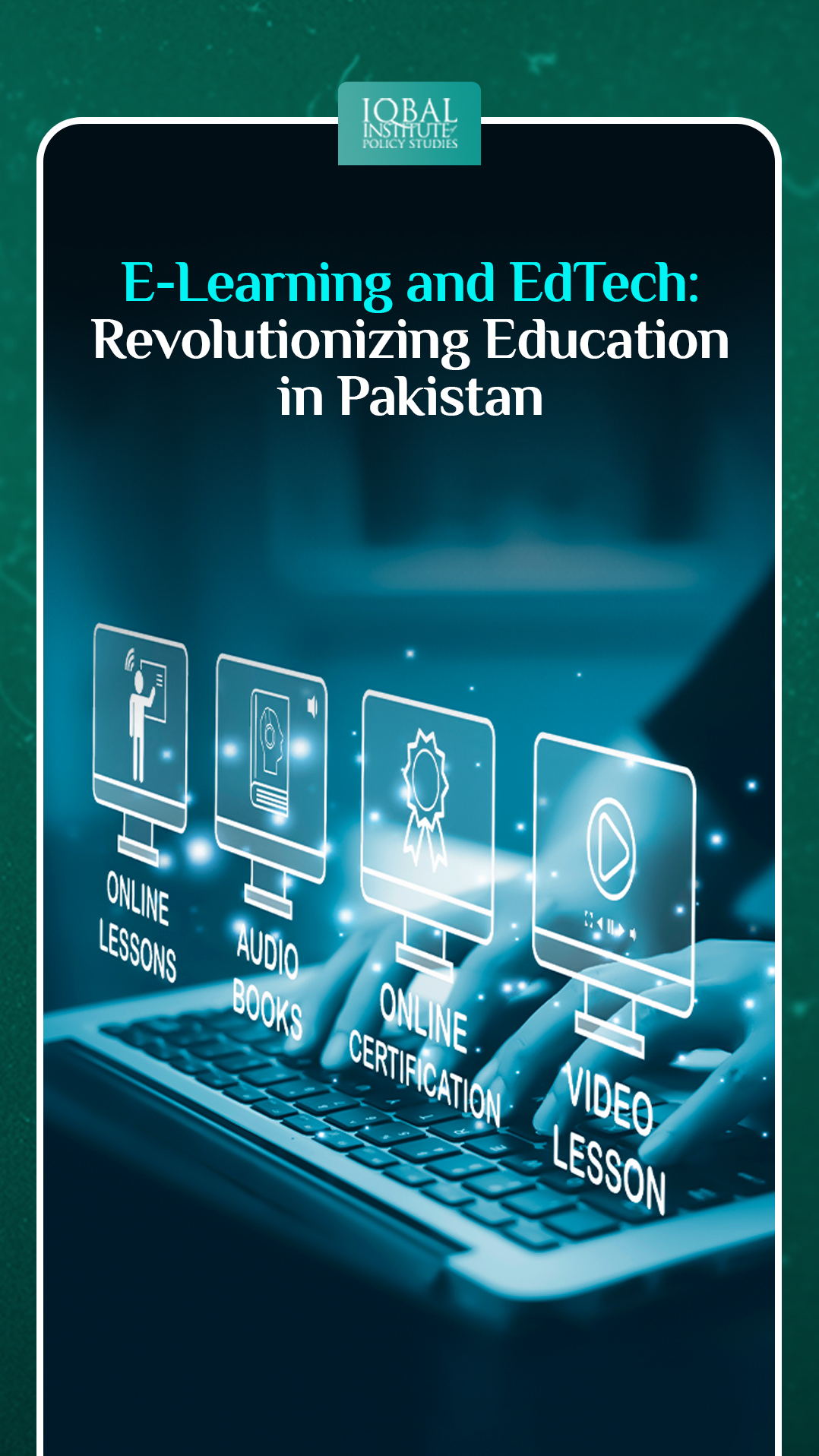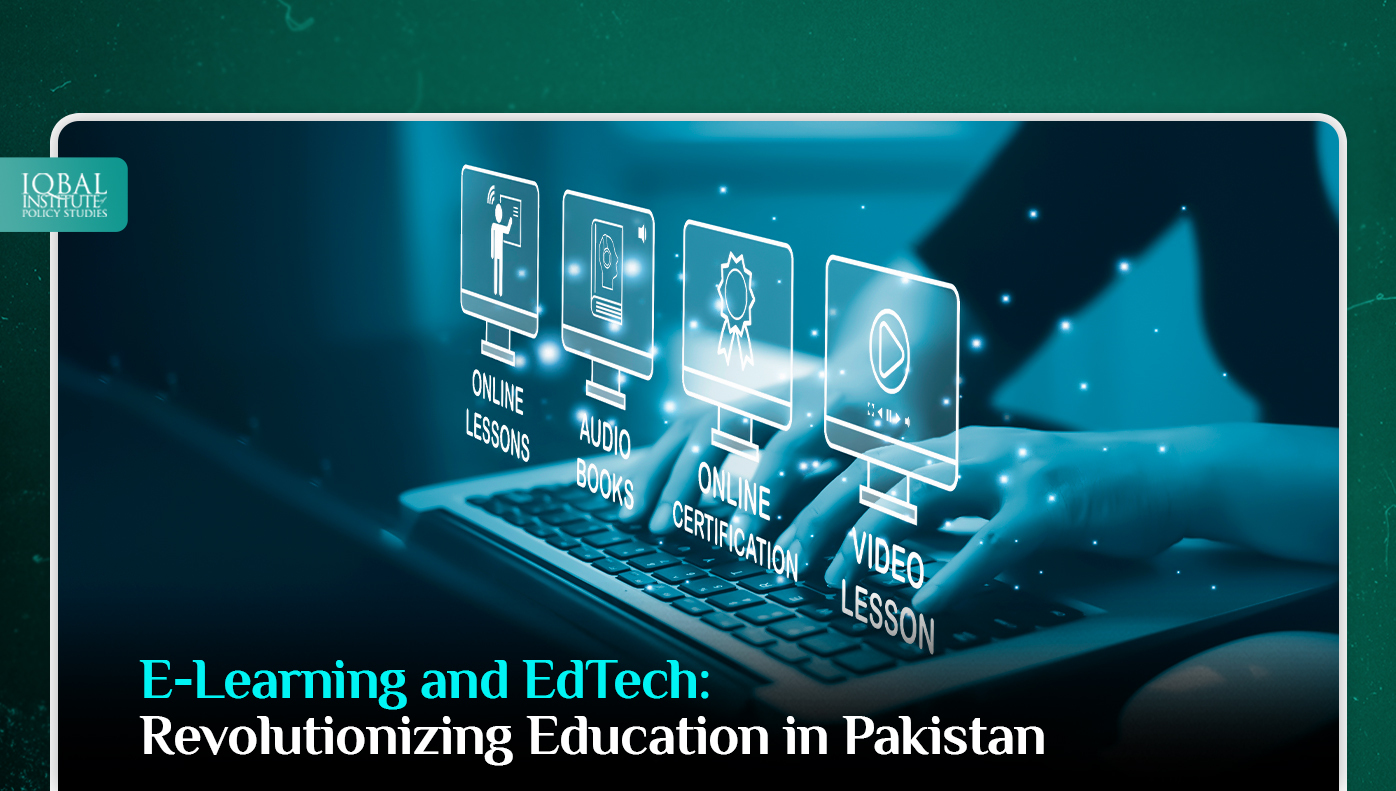In recent years, the education landscape in Pakistan has undergone a significant transformation with the advent of E-Learning and EdTech (Educational Technology). This digital revolution has opened up new horizons for students and educators alike, breaking down geographical barriers and providing access to quality education like never before. As the world becomes increasingly interconnected, Pakistan’s education sector has embraced technology-driven solutions to bridge the gap between traditional classroom learning and modern digital education. This blog delves into the impact of E-Learning and EdTech in revolutionizing education in Pakistan.
The Need for Innovation
The need for innovation in education has never been more pronounced than in the context of Pakistan’s diverse and evolving educational landscape. Traditional methods of education, while effective in their own right, often struggle to cater to the diverse learning needs of a rapidly changing society. With a large and growing population, limited resources, and geographical barriers, the challenge of providing quality education to every corner of the country is daunting. This is where innovation becomes paramount. The infusion of E-Learning and EdTech into the educational ecosystem brings forth a new era of possibilities. These innovative tools have the power to transcend geographical constraints, extend access to quality educational resources, and customize learning experiences to suit individual preferences and paces. As the world becomes increasingly interconnected and reliant on technology, harnessing the potential of innovation in education is not just a necessity but a transformative opportunity that can reshape the way knowledge is imparted and acquired. By fostering creativity, adaptability, and critical thinking, educational innovation through E-Learning and EdTech can equip Pakistani students with the skills they need to thrive in an ever-evolving global landscape, ultimately contributing to the growth and progress of the nation.
Advantages of E-Learning and EdTech
Access to Quality Education
One of the most significant advantages of E-Learning and EdTech is that it extends access to quality education beyond the confines of traditional classrooms. Students in remote areas can now access online courses, video lectures, and educational materials from renowned institutions without the need to relocate or commute.
Personalized Learning
EdTech platforms utilize data-driven insights to customize learning experiences based on individual student performance and preferences. Adaptive learning algorithms ensure that each student receives targeted content and support, enhancing their understanding and retention of concepts.
Interactive and Engaging Content
E-Learning materials often incorporate multimedia elements such as videos, animations, and interactive quizzes, making learning more engaging and enjoyable. This approach fosters a deeper understanding of complex subjects and encourages active participation.
Flexibility and Convenience
EdTech allows students to learn at their own pace and convenience. This flexibility is especially beneficial for working professionals, individuals with familial responsibilities, or those who face mobility challenges.
Cost-Effectiveness
E-Learning significantly reduces the costs associated with traditional education, such as commuting, textbooks, and physical infrastructure. This affordability widens access to education for individuals from diverse socioeconomic backgrounds.
Skill Development for the Modern Workforce
EdTech equips learners with digital literacy skills and exposes them to cutting-edge technologies, preparing them for the demands of the modern job market.
E-Learning Success Stories in Pakistan
Several E-Learning platforms and initiatives have emerged in Pakistan, contributing to the education revolution:
Taleemabad
A localized E-Learning platform that provides animated video lessons in Urdu for primary school students. Taleemabad has effectively bridged the language gap and brought quality education to underserved communities.
Sabaq Foundation
This platform offers free video lectures on various subjects, catering to students from primary to intermediate levels. Sabaq Foundation’s user-friendly interface and comprehensive content have made it a popular choice among students.
Ilm Ki Dunya
A comprehensive online resource for students preparing for competitive exams, providing study materials, past papers, and practice tests.
Virtual University of Pakistan
As a pioneer in online higher education, the Virtual University offers degree programs and courses across various disciplines, enabling adults to pursue higher education while balancing their responsibilities.
Challenges and Future Prospects
While E-Learning and EdTech offer immense potential, they also come with their set of challenges:
Digital Divide
Disparities in internet access and technology ownership can lead to unequal access to online education, particularly in rural and low-income areas.
Pedagogical Shift
Integrating technology into education requires a shift in teaching methods and instructional design. Educators need training to effectively use EdTech tools and create engaging digital content.
Quality Assurance
Ensuring the quality and accuracy of online educational content is crucial. EdTech platforms must maintain high standards and continually update their materials to align with evolving curricula.
Data Privacy and Security
Safeguarding students’ personal information and ensuring a secure online learning environment are essential considerations for EdTech providers.
Cultural Sensitivity
EdTech platforms must be culturally sensitive and relevant to the Pakistani context to effectively engage students and promote meaningful learning experiences.
The future of E-Learning and EdTech in Pakistan looks promising. With continued investment in infrastructure, digital literacy initiatives, and teacher training, the education sector can harness the full potential of technology to create a more inclusive and effective learning ecosystem. As the EdTech landscape evolves, we can expect to see innovative solutions, partnerships, and collaborations that further revolutionize education in Pakistan.
Conclusion
E-Learning and EdTech have ushered in a new era of education in Pakistan, redefining the way students learn and educators teach. This digital revolution holds the promise of breaking down barriers to access, improving learning outcomes, and empowering individuals to reach their full potential. While challenges persist, the collective efforts of stakeholders, including government, educators, technology developers, and civil society, can pave the way for a transformative education system that prepares Pakistani youth for success in the 21st century and beyond. The journey towards an inclusive, tech-enabled education landscape has begun, and the future holds exciting possibilities for the educational growth of Pakistan.
This article is written by Radma Nouman. Radma is a research analyst at the Iqbal Institute of Policy Studies (IIPS).



Leave a Reply